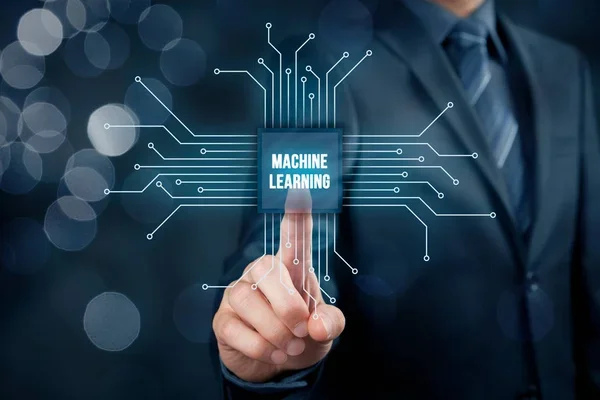Machine Learning (ML) is a branch of artificial intelligence (AI) that empowers computers to learn and improve from experience without explicit programming. It enables systems to automatically learn and adapt from data to perform tasks, making it a fundamental technology driving innovation across industries.
The Process of Machine Learning
- Data Collection: ML models require substantial data to learn patterns. This involves gathering relevant datasets from various sources.
- Data Preprocessing: Raw data often needs cleaning and preprocessing to be suitable for training models. This step involves data normalization, feature engineering, and handling missing values.
- Model Training: Using algorithms, models are trained on historical data to recognize patterns and make predictions. This step involves selecting appropriate algorithms and fine-tuning model parameters.
- Evaluation: Trained models are evaluated using test data to assess their performance and accuracy. Metrics like accuracy, precision, recall, and F1-score are used to measure model effectiveness.
- Deployment: Successful models are deployed into production systems to make real-time predictions and decisions.

Popular Machine Learning Algorithms
Neural Networks
Neural networks are algorithms inspired by the brain's neural structure, consisting of interconnected nodes (neurons) organized in layers. They excel in tasks like image recognition and natural language processing due to their ability to learn complex patterns from data.
Linear Regression
Linear regression is a statistical method used to model the relationship between variables by fitting a linear equation to observed data. It's commonly used for predictive analysis and forecasting based on historical trends.
Logistic Regression
Logistic regression is a statistical technique used for binary classification tasks, estimating the probability of a categorical outcome based on input features. Despite its name, it's a classification algorithm, not regression.
Decision Trees
Decision trees are tree-like structures used for classification and regression tasks. They split the dataset into subsets based on features to make decisions, resulting in interpretable models that handle both categorical and numerical data.
Random Forests
Random forests are ensemble learning methods that build multiple decision trees during training. They improve prediction accuracy and reduce overfitting by aggregating predictions from multiple models.
Clustering
Clustering is an unsupervised learning technique that groups similar data points into clusters based on their features. It's used for segmentation and identifying patterns in data without predefined labels.
Machine Learning Methods



Supervised Learning
In supervised learning, algorithms learn from labeled data to make predictions or decisions. Common algorithms include Linear Regression, Decision Trees, Support Vector Machines (SVM), and Neural Networks.
Unsupervised Learning
Unsupervised learning deals with unlabeled data to discover patterns or intrinsic structures. Clustering algorithms like K-Means, Hierarchical Clustering, and Dimensionality Reduction techniques such as Principal Component Analysis (PCA) are used.
Reinforcement Learning
Reinforcement learning involves training algorithms to make decisions by learning from feedback in an environment. It's used in applications like robotics, gaming, and autonomous vehicles.
Are you ready to take the big step towards your digital growth?
Get Your Free Audit Now!
Frequently asked questions
What is machine learning (ML)?
Machine learning is a branch of AI that enables computers to learn and improve from experience without explicit programming, adapting automatically from data.
What is machine learning as a service?
Machine learning as a service (MLaaS) provides cloud-based platforms that offer ML tools and infrastructure, allowing businesses to develop and deploy ML models without needing in-depth expertise.
How can machine learning services benefit my business?
Machine learning services can automate decision-making, provide predictive analytics, enhance customer experiences, and improve operational efficiency.
What industries can benefit from machine learning as a service?
Industries such as healthcare, finance, retail, manufacturing, and logistics can benefit from MLaaS by leveraging data-driven insights and automation.
What does a machine learning company do?
A machine learning company develops, implements, and supports ML solutions tailored to business needs, helping organizations leverage data for better decision-making.
How do you implement machine learning services?
Implementation involves data collection and preprocessing, selecting and training ML models, evaluating performance, and deploying the models into production environments.
What types of machine learning models are commonly used?
Common models include supervised learning, unsupervised learning, reinforcement learning, and deep learning models.
Why should I choose a machine learning service?
Our ML service offers expert knowledge, state-of-the-art technology, and customized solutions that meet your specific business challenges and goals.
How can ML services improve operational efficiency?
ML services can automate routine tasks, optimize processes, and provide actionable insights, leading to improved efficiency and cost savings.
Can machine learning as a service be customized for my business needs?
Yes, MLaaS can be tailored to fit your business requirements, ensuring that the solutions provided address your specific challenges and objectives effectively.
Client Testimonials












